For over 2,000 years, the Catholic Church has been a guiding light for millions of believers worldwide, offering spiritual nourishment, moral guidance, and a deep connection to the teachings of Jesus Christ. Yet, with such a long and rich history, it’s natural for people to have questions about the Church’s beliefs, practices, and traditions. Whether you’re a lifelong Catholic, someone new to the faith, or simply curious, we’re here to help answer some of the most frequently asked questions about the Catholic Church.
1. What is the Catholic Church?
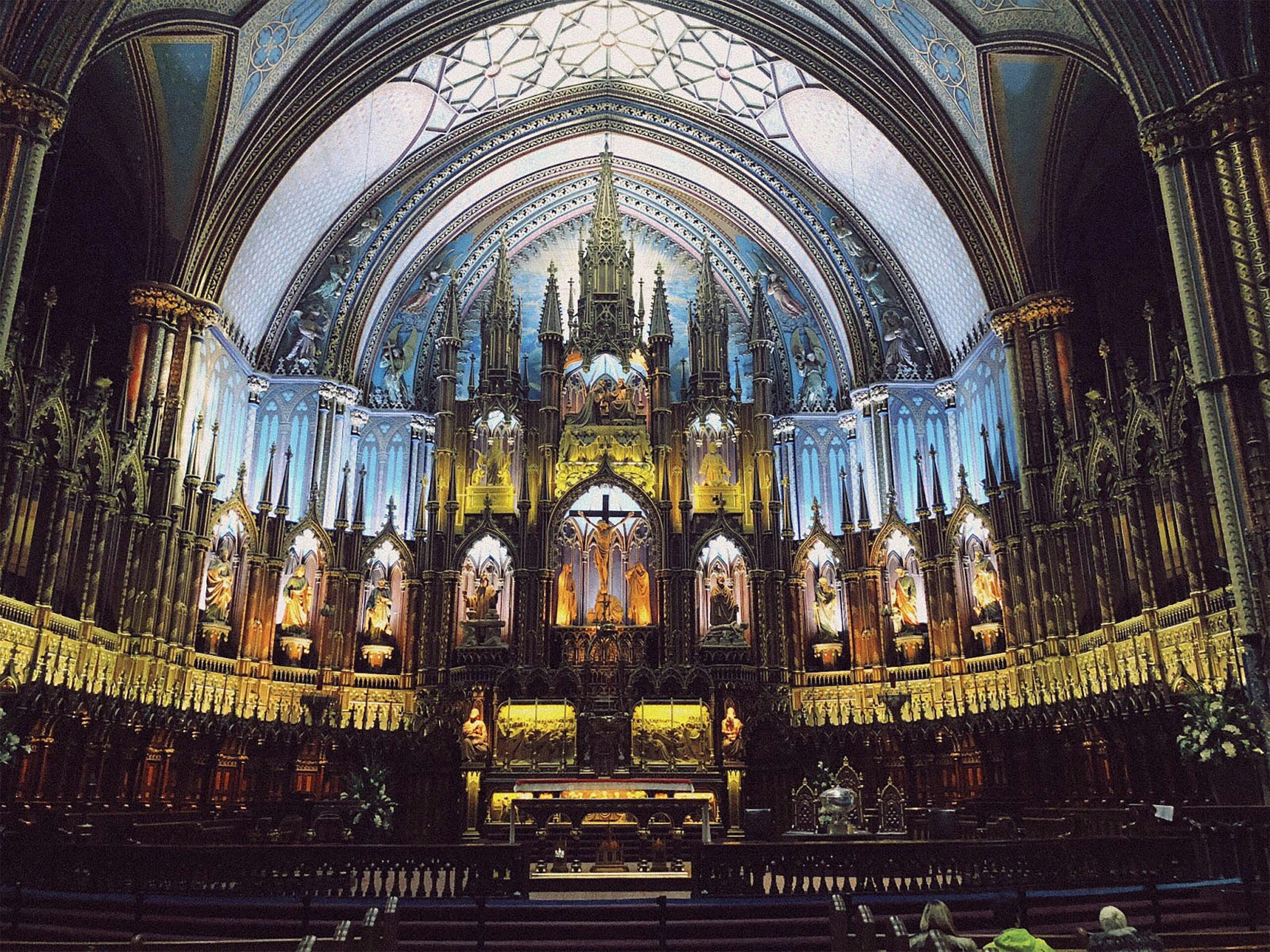
The Catholic Church is the largest Christian denomination in the world, encompassing over a billion members from every corner of the globe. It is a spiritual and communal body that transcends national, cultural, and linguistic boundaries, unified in the belief that Jesus Christ founded the Church to continue His mission on earth. The Catholic Church traces its origins back to the time of Christ and His apostles, with a continuous and unbroken history spanning over two millennia.
Foundation and Apostolic Succession
The Catholic Church was founded directly by Jesus Christ, who appointed the apostle Peter as the leader of His followers, declaring, “You are Peter, and on this rock, I will build my Church” (Matthew 16:18). This statement established the papacy, with Peter recognized as the first Pope. The authority given to Peter has been passed down through an unbroken line of successors, known as apostolic succession, ensuring that the Church remains true to its foundational teachings and mission.
Apostolic succession is a key aspect of the Catholic Church’s identity. It is the belief that the bishops of the Church, including the Pope, are direct successors to the apostles, ordained through the laying on of hands in a lineage that stretches back to the earliest days of the Church. This succession is seen as vital for preserving the integrity of the faith, ensuring that the teachings, sacraments, and governance of the Church remain consistent with the intentions of Christ and His apostles.
Universal Mission
The word “Catholic” itself means “universal,” reflecting the Church’s mission to spread the Gospel to all people, regardless of race, nationality, or social status. The universality of the Catholic Church is expressed not only in its global reach but also in its teachings, which are intended to apply to all of humanity, offering a path to salvation through Jesus Christ.
The Catholic Church is the one true Church, entrusted with preserving the fullness of Christ’s teachings and sacraments. This belief is rooted in the idea that Christ instituted the Church as a visible and enduring community, guided by the Holy Spirit, to continue His work of teaching, sanctifying, and governing the faithful. The Church is the “Body of Christ” on earth, with Christ as its head, and every baptized member as part of this mystical body, each with a role to play in the Church’s mission.
A Global Community
The Catholic Church is truly global, with a presence in virtually every country and culture. Its universal nature is reflected in its ability to embrace a wide variety of cultural expressions of faith while maintaining a unified doctrine. Catholics celebrate their faith in diverse ways, with liturgies, devotions, and customs that reflect the richness of different cultures, all while adhering to the same essential beliefs and practices.
This global reach also means that the Catholic Church plays a significant role in addressing social and moral issues around the world. The Church’s teachings on the dignity of human life, social justice, and care for creation are not confined to one culture or region but are intended to guide the moral and ethical decisions of Catholics everywhere.
The Catholic Church is a universal community of believers, deeply rooted in the teachings of Jesus Christ and the apostles, and committed to spreading the Gospel to all people. It is a Church that values continuity with the past while engaging with the present, offering a path to salvation that is open to everyone. Through its sacraments, teachings, and leadership, the Catholic Church seeks to fulfill its mission of bringing people into a closer relationship with God and each other, in the hope of eternal life.
2. What are the Sacraments?
The Catholic Church recognizes seven sacraments, each of which plays a vital role in the spiritual life of believers. These sacraments are considered outward signs instituted by Christ to confer grace, guiding Catholics on their journey of faith from birth to death and beyond. The sacraments are more than mere symbols; they are effective means by which God imparts His divine life and love to His people. Each sacrament corresponds to significant stages of Christian life and helps to build up the Body of Christ, the Church.
1. Baptism: The Gateway to the Christian Life
Baptism is the first sacrament of initiation and the foundation upon which all other sacraments are built. It is through Baptism that a person is cleansed from original sin, the inherited state of separation from God due to the Fall of Adam and Eve. This sacrament marks the individual’s official entry into the Christian community, making them a member of the Church and a child of God.
Baptism not only cleanses the soul but also bestows sanctifying grace, which is necessary for salvation. This grace is the divine life of God within the soul, enabling the baptized person to live a holy life and participate fully in the Church’s sacramental life. Baptism is a sacrament that can be received only once, as it imprints an indelible spiritual mark on the soul, identifying the individual as belonging to Christ forever.
2. Confirmation: Strengthening in the Spirit
Confirmation is the sacrament that strengthens and deepens the grace received in Baptism. While Baptism initiates a person into the Christian life, Confirmation empowers them to live out their faith more fully. This sacrament is often associated with the “coming of age” in the Church, as it is typically received by those who are maturing in their faith and are ready to take on greater responsibilities within the Christian community.
During Confirmation, the bishop or priest anoints the candidate with chrism oil and invokes the Holy Spirit, conferring the gifts of the Spirit, such as wisdom, understanding, counsel, fortitude, knowledge, piety, and fear of the Lord. These gifts equip the confirmed to be strong witnesses to the faith, able to defend and spread the Gospel in word and deed. Like Baptism, Confirmation leaves an indelible mark on the soul and can be received only once.
3. Eucharist: The Source and Summit of Christian Life
The Eucharist, also known as Holy Communion, is the heart of Catholic worship and the most profound encounter with Christ. In this sacrament, Catholics believe that the bread and wine offered at Mass become the actual Body and Blood of Jesus Christ, a mystery known as transubstantiation. The Eucharist is not just a symbolic meal; it is a true participation in the sacrifice of Christ on the Cross and His resurrection.
Receiving the Eucharist unites the faithful with Christ and with each other, as they become one body in Him. It nourishes the soul, strengthens the bonds of charity, and provides spiritual sustenance for the journey of life. The Eucharist is celebrated at every Mass, and Catholics are encouraged to receive it frequently, ideally every Sunday or even daily, to grow in grace and holiness.
4. Penance (Confession): The Sacrament of Reconciliation
The Sacrament of Penance, also known as Confession or Reconciliation, is the means by which Catholics receive God’s forgiveness for sins committed after Baptism. In this sacrament, the penitent confesses their sins to a priest, who acts in the person of Christ to grant absolution. The priest also assigns a penance, which is an act of reparation or spiritual discipline, to help the penitent grow in virtue and avoid sin in the future.
Confession is a powerful experience of God’s mercy and love, restoring the penitent to a state of grace and reconciling them with both God and the Church. Regular confession is encouraged as it helps the faithful to examine their conscience, acknowledge their failings, and receive the grace needed to overcome them. The sacrament is especially important for those who have committed mortal sins, which sever their relationship with God and require sacramental absolution.
5. Anointing of the Sick: A Sacrament of Healing and Comfort
The Anointing of the Sick is a sacrament of healing intended for those who are seriously ill, facing surgery, or near death. Through this sacrament, the Church prays for physical and spiritual healing, as well as for the forgiveness of sins. The priest anoints the sick person with holy oil, usually on the forehead and hands, and offers prayers for their recovery or peaceful passing.
This sacrament brings comfort, peace, and courage to the sick, reminding them that they are not alone in their suffering. It also unites their sufferings with those of Christ, offering them as a form of participation in His redemptive work. While Anointing of the Sick is often associated with the end of life, it can be received by anyone facing a serious health challenge, and it may be administered more than once.
6. Holy Orders: The Sacrament of Ordination
Holy Orders is the sacrament through which men are ordained as deacons, priests, or bishops, enabling them to serve the Church in a special and essential way. The sacrament of Holy Orders perpetuates the mission given by Christ to His apostles, ensuring that the Church continues to be shepherded and guided by ordained ministers.
There are three degrees of Holy Orders:
- Deacons are ordained to serve the Church through acts of charity, preaching, and assisting at the liturgy, including the celebration of the sacraments of Baptism and Matrimony.
- Priests are ordained to lead the faithful in worship, particularly through the celebration of the Eucharist and the administration of the other sacraments. They also provide pastoral care, spiritual direction, and teaching.
- Bishops receive the fullness of the sacrament, making them successors to the apostles. They have the responsibility of teaching, sanctifying, and governing the Church in their diocese, and they are the only ministers who can ordain other bishops, priests, and deacons.
Ordination imprints an indelible spiritual character on the soul, configuring the ordained person to Christ in a unique way, and it is a lifelong commitment to serving God and His people.
7. Matrimony: A Covenant of Love and Life
Matrimony, or Marriage, is the sacrament by which a man and a woman are united in a lifelong bond of love and commitment. This covenant mirrors the relationship between Christ and His Church, characterized by mutual self-giving, fidelity, and openness to life. In Matrimony, the couple becomes a living sign of God’s love for His people, and their union is blessed and strengthened by His grace.
Marriage is a vocation to holiness, as the spouses are called to love and support each other in their journey to heaven. They are also called to be open to the gift of life, welcoming children as a fruit of their love and raising them in the faith. The sacrament of Matrimony consecrates the couple’s love and makes them a visible sign of God’s presence in the world.
The Sacraments as Pathways to Grace
The seven sacraments are essential to the Catholic faith, serving as channels of God’s grace and guiding the faithful on their spiritual journey. Each sacrament corresponds to different stages of life and different needs, from the beginning of Christian life in Baptism to the ongoing nourishment of the Eucharist, the healing of Penance, and the grace of Matrimony and Holy Orders.
By participating in the sacraments, Catholics draw closer to God, receive His divine life, and are equipped to live out their faith in the world. The sacraments are not just rituals; they are encounters with Christ Himself, who continues to work in the Church and in the lives of believers through these sacred signs.
3. Why do Catholics honor Mary and the Saints?
Catholics honor Mary, the mother of Jesus, and the saints because of their exemplary lives of holiness, their deep relationship with God, and the powerful role they play within the Church’s spiritual life. This honor, known as veneration, is distinct from worship, which is reserved for God alone. The practice of venerating Mary and the saints is rooted in the Catholic understanding of the Communion of Saints, a spiritual bond that unites all members of the Church—those on earth, those in heaven, and those undergoing purification in purgatory.
Mary: The Mother of God and the Model of Faith
Mary holds a uniquely exalted place in Catholic devotion, primarily due to her role as the Mother of God (Theotokos) and her singular cooperation in God’s plan of salvation. From the moment of the Annunciation, when she accepted God’s will to bear the Son of God, Mary’s life was marked by unwavering faith, humility, and obedience to God’s word. Catholics believe that Mary’s “yes” to God, her fiat, opened the door to the Incarnation, making her an essential participant in the mystery of salvation.
Because of her close relationship with Jesus, Catholics see Mary as the most powerful intercessor with her Son. She is often referred to as the “Mediatrix of All Graces,” not because she is the source of grace, but because she has a unique role in distributing the graces that Christ won for humanity. Her intercession is seen as particularly powerful because of her maternal relationship with Jesus and her unparalleled purity and holiness.
Mary’s life serves as a model of perfect discipleship for all Christians. Her example of saying “yes” to God’s will, her fidelity even in the face of suffering, and her profound humility inspire Catholics to strive for greater holiness in their own lives. The many titles given to Mary, such as “Queen of Heaven,” “Our Lady of Sorrows,” and “Our Lady of the Rosary,” reflect the various aspects of her role in salvation history and her ongoing spiritual motherhood of the Church.
The Saints: Models of Holiness and Intercessors
In addition to Mary, Catholics honor the saints—those men and women who have lived lives of extraordinary virtue and are now in heaven. The saints are venerated because they have already attained the ultimate goal of the Christian life: union with God in eternal glory. Their lives on earth serve as examples of how to live out the Gospel, often in the face of great trials and persecution.
The saints come from all walks of life—priests, religious, laypeople, martyrs, doctors of the Church, mystics, and ordinary people who lived extraordinary lives of faith. Each saint embodies particular virtues, such as courage, charity, humility, or patience, and they often become patrons of specific causes, professions, or places. For example, St. Francis of Assisi is known as the patron saint of animals and the environment, while St. Thérèse of Lisieux is the patroness of missionaries.
Catholics believe that the saints, having attained eternal life with God, can intercede for us. This belief is rooted in the understanding of the Communion of Saints, which teaches that the Church is one body, with Christ as its head, and all members are connected in a spiritual unity. Just as we might ask a friend or family member to pray for us, Catholics ask the saints to pray for them, trusting that their prayers are powerful before God because of their closeness to Him.
The Communion of Saints: A Spiritual Family
The doctrine of the Communion of Saints is central to why Catholics honor Mary and the saints. This doctrine affirms that all members of the Church, whether in heaven, purgatory, or on earth, are united in Christ. This spiritual union means that the faithful can help each other through prayer, support, and love, transcending even death.
When Catholics pray to Mary or the saints, they are not placing them on the same level as God. Rather, they are recognizing their special relationship with God and asking for their prayers, just as we might ask a friend to pray for us. This intercessory prayer is a way of participating in the communal nature of the Church, where all members support each other in the journey toward heaven.
Distinction Between Veneration and Worship
It is crucial to understand that Catholics do not worship Mary or the saints—worship, or adoration, is reserved for God alone. The honor given to Mary and the saints is called veneration (dulia), and it differs fundamentally from worship (latria). Worship involves offering to God the praise, adoration, and sacrifice that is due to Him alone as the Creator and Redeemer of all. Veneration, on the other hand, is an expression of deep respect and love for those who have lived exemplary lives of faith and are now with God in heaven.
Mary, because of her unique role as the Mother of God and her exceptional holiness, receives a special type of veneration called hyperdulia, which is higher than the veneration given to the saints but still infinitely below the worship given to God.
Honoring Mary and the Saints as Part of Catholic Spiritual Life
Honoring Mary and the saints is an integral part of Catholic spiritual life. It reflects the Church’s understanding of the Communion of Saints, the role of intercessory prayer, and the desire to follow the examples of those who have lived lives of heroic virtue. By venerating Mary and the saints, Catholics draw closer to God, asking for their prayers and guidance as they seek to live holy lives.
This veneration is not just about looking to the past; it’s also about seeking inspiration and support in the present. Mary and the saints are seen as friends and allies on the journey of faith, helping the faithful to grow in love, grace, and devotion to God. Through their intercession and example, Catholics are encouraged to live more fully the life of Christ and to strive for the holiness that leads to eternal life with God.
4. What is the Pope’s role in the Catholic Church?
The Pope is the Bishop of Rome and the supreme spiritual leader of the Catholic Church, a role that carries profound significance and responsibility. As the successor to St. Peter, who was appointed by Jesus Christ as the “rock” upon which He would build His Church (Matthew 16:18), the Pope is seen as the earthly representative of Christ and the shepherd of the global Catholic community. The papacy is one of the most enduring institutions in the world, with a history that spans over two millennia, and it plays a central role in the life of the Church.
The Pope as Successor to St. Peter
Catholics believe that the Pope is the direct successor to St. Peter, the apostle whom Jesus chose to lead His disciples and to whom He entrusted the keys of the Kingdom of Heaven (Matthew 16:19). This succession is believed to be unbroken, with each Pope receiving the same mission and authority that Christ gave to Peter. The Pope is therefore often referred to as the “Vicar of Christ,” meaning that he acts as Christ’s representative on earth, guiding the Church in faith and morals.
This understanding of the Pope’s role is rooted in the early Church, where Peter was recognized as the leader of the apostles and the first bishop of Rome. From the earliest times, the bishops of Rome were accorded a special status within the Church, not only because of Rome’s importance as the capital of the Roman Empire but also because of its association with Peter and Paul, who were both martyred there. Over time, the papacy developed as the central authority in the Church, with the Pope assuming the role of spiritual father to all Christians.
The Pope as Teacher and Guardian of the Faith
One of the Pope’s primary responsibilities is to safeguard and teach the faith. As the highest authority in the Church, the Pope is entrusted with the task of preserving the integrity of Catholic doctrine and ensuring that the teachings of Christ and the apostles are faithfully transmitted to each generation. This involves interpreting Scripture and Tradition, defining dogma, and addressing contemporary issues in light of the Gospel.
The Pope’s teaching authority is exercised in several ways, including through encyclicals, apostolic letters, and other official documents that provide guidance on matters of faith and morals. The Pope also plays a crucial role in convening and guiding ecumenical councils, which are gatherings of bishops from around the world to discuss and resolve important theological and pastoral issues. The teachings of the Pope, especially when issued in such contexts, carry significant weight and are considered binding on all Catholics.
Papal Infallibility
A distinctive aspect of the Pope’s role is the doctrine of papal infallibility, which was established by Christ to protect the Church from error in matters of faith and morals. Papal infallibility does not mean that the Pope is incapable of making mistakes or that he is free from sin. Rather, it means that when the Pope speaks “ex cathedra” (from the chair of St. Peter), defining a doctrine concerning faith or morals to be held by the entire Church, he is preserved from the possibility of error by the Holy Spirit.
This doctrine was formally defined at the First Vatican Council in 1870, although its roots can be traced back to the early Church. Infallibility is exercised only under specific conditions: the Pope must be speaking as the universal pastor of the Church, he must intend to teach a doctrine that pertains to faith or morals, and he must declare that this teaching is to be held by the whole Church. Examples of infallible teachings include the dogmas of the Immaculate Conception and the Assumption of Mary.
Papal infallibility is a rare occurrence, used sparingly and only in matters of great importance. Its purpose is to ensure that the Church remains faithful to the teachings of Christ and the apostles, providing clarity and certainty on issues that are essential to the faith.
The Pope as a Symbol of Unity
The Pope also serves as a powerful symbol of unity within the Catholic Church. As the spiritual leader of over a billion Catholics worldwide, the Pope is a focal point of communion for the global Church. His role is to foster unity among the faithful, guiding them in a common mission to live out the Gospel and bear witness to Christ in the world.
This unifying role is particularly evident in the Pope’s interactions with bishops, who are the shepherds of local churches around the world. The Pope works in close collaboration with the bishops, offering support, guidance, and, when necessary, correction. Through the collegiality of the bishops in union with the Pope, the universal Church is able to maintain a coherent and consistent witness to the faith, despite the diversity of cultures, languages, and traditions within the global Catholic community.
The Pope’s role as a symbol of unity also extends to the Church’s ecumenical efforts, as he seeks to promote dialogue and reconciliation with other Christian denominations and with other religions. The Pope is often at the forefront of initiatives aimed at building bridges between different faith communities, advocating for peace, justice, and the common good.
The Pope’s Pastoral Role
Beyond his doctrinal and administrative responsibilities, the Pope is also a pastor, called to care for the spiritual needs of the faithful. This pastoral role is often expressed through the Pope’s public ministry, including his travels to different countries, where he meets with Catholics and others to encourage them in their faith and address local and global concerns.
Through homilies, speeches, and personal interactions, the Pope seeks to inspire and uplift the faithful, offering them hope and guidance in their spiritual journeys. The Pope’s pastoral care extends to all people, regardless of their religious affiliation, as he advocates for the dignity of every human person and the defense of the most vulnerable.
The Pope as the Shepherd of the Universal Church
The Pope’s role in the Catholic Church is multifaceted, encompassing teaching, governance, pastoral care, and the promotion of unity. As the successor of St. Peter, the Pope is entrusted with the mission of leading the Church in fidelity to Christ, preserving the truth of the Gospel, and guiding the faithful on their journey toward eternal life.
In a world that is often divided and confused, the Pope serves as a beacon of faith, hope, and charity, pointing the way to Christ and calling all people to a deeper relationship with God. Through his ministry, the Pope helps to ensure that the Catholic Church remains a vibrant and faithful witness to the love of God in the world.
5. What is the Mass, and why is it central to Catholic worship?
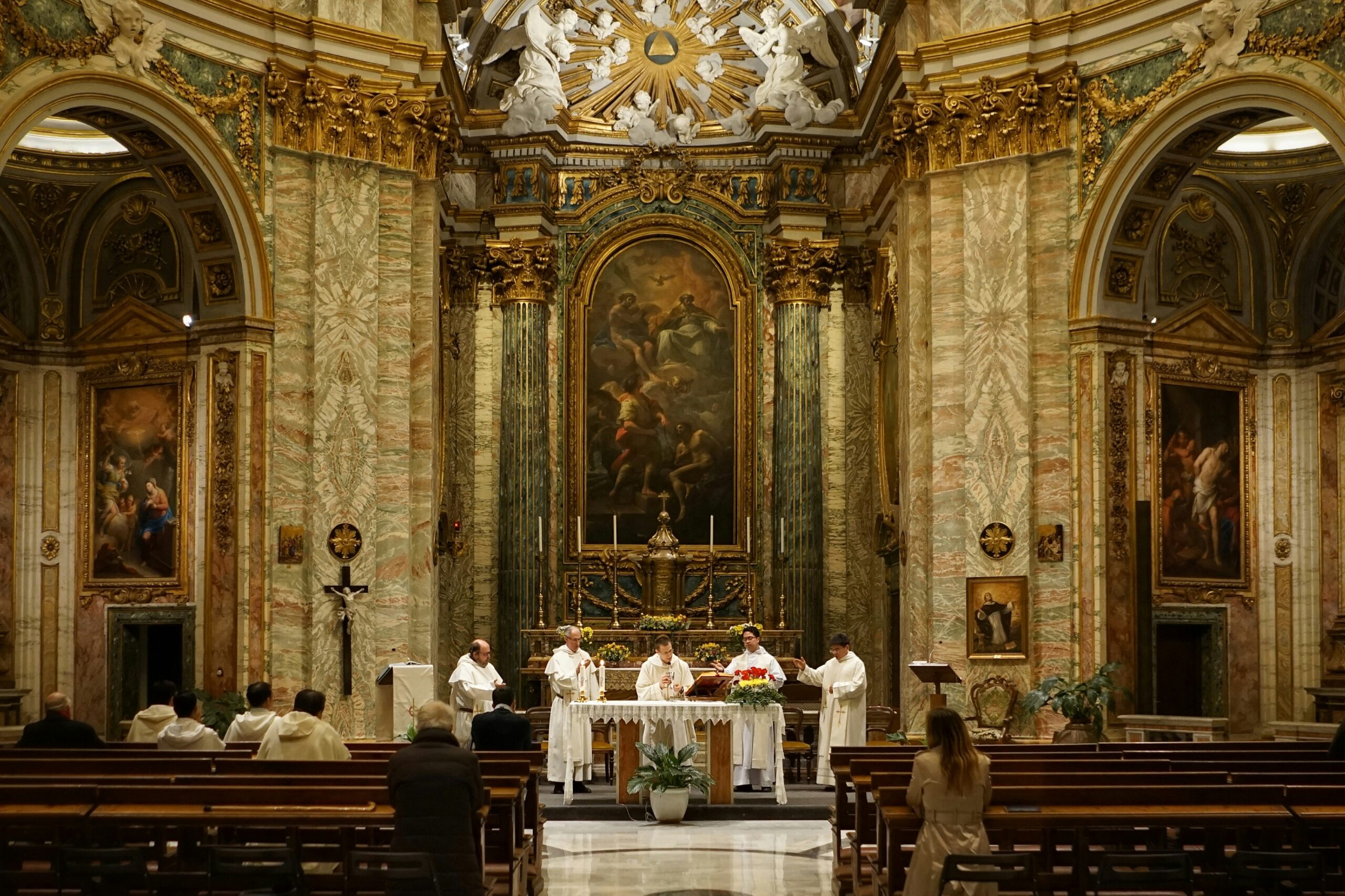
Catholics celebrating the Holy Sacrifice of the Mass
The Mass is the central act of worship in the Catholic Church, commemorating the Last Supper, where Jesus instituted the Eucharist. During the Mass, Catholics gather to hear the Word of God, offer prayers, and participate in the Eucharist, where they believe that the bread and wine become the actual Body and Blood of Christ.
The Mass is both a celebration of Christ’s sacrifice on the Cross and a means of receiving Him in the Eucharist, which Catholics believe is the “source and summit” of their Christian life. The Eucharist nourishes and strengthens the faithful, uniting them with Christ and with each other in a profound way.
6. Why do Catholics go to Confession?
Confession, also known as the Sacrament of Penance or Reconciliation, is a sacrament in which Catholics confess their sins to a priest and receive absolution. Catholics believe that sin damages their relationship with God and the Church, and Confession is the means by which they can be reconciled with both.
Through this sacrament, Catholics experience God’s mercy and forgiveness, which restores their souls and helps them grow in holiness. The practice of Confession is based on Jesus’ authority given to His apostles to forgive sins in His name (John 20:23).
7. What is purgatory, and why do Catholics believe in it?
Purgatory is a state of purification for souls who have died in a state of grace but still need to be purified of venial sins or the temporal punishment due to sin before entering heaven. The concept of purgatory is rooted in the Catholic understanding of God’s justice and mercy.
Catholics believe that purgatory is a temporary state where souls undergo purification so they can enter into the fullness of God’s presence in heaven. This belief is supported by Scripture and Tradition, and it reflects the Church’s teaching on the necessity of being fully cleansed from sin before seeing God face to face. Catholics also pray for the souls in purgatory, asking God to grant them eternal rest and bring them swiftly into His glory.
8. Why do Catholics pray the Rosary?

The rosary is a popular devotion in the Catholic Church.
The Rosary is a form of prayer that involves the repetition of specific prayers, including the Our Father, Hail Mary, and Glory Be, while meditating on key events, or “mysteries,” in the lives of Jesus and Mary. The Rosary is a powerful devotional practice that helps Catholics draw closer to Christ by contemplating His life, death, and resurrection.
Praying the Rosary is also a way to seek the intercession of the Blessed Virgin Mary, asking her to pray for us and guide us in our spiritual journey. The Rosary has been a beloved prayer in the Church for centuries, and many saints have testified to its efficacy in bringing peace, conversion, and grace into the lives of those who pray it faithfully.
9. What is the role of the laity in the Catholic Church?
The laity, or laypeople, are the members of the Church who are not ordained as priests, deacons, or religious brothers and sisters. However, the laity play a vital role in the life of the Church. They are called to live out their faith in the world, witnessing to Christ in their families, workplaces, and communities.
The Second Vatican Council emphasized the importance of the laity’s participation in the Church’s mission. Laypeople are encouraged to engage in various ministries within the Church, such as teaching, serving the poor, and participating in liturgical functions. They are also called to be witnesses to the Gospel in the secular world, bringing Christian values to bear on society and working for the common good.
Learn More with Catholic Radio Network
These are just a few of the many questions people have about the Catholic Church. Understanding the richness and depth of Catholic teaching can lead to a deeper relationship with God and a more meaningful practice of faith.
To dive deeper into these topics and more, tune in to Catholic Radio Network, where we explore the Catholic faith through engaging shows and discussions. Whether you’re seeking answers to your questions or simply want to grow in your faith, CRN is here to guide you on your journey.
Check the Programming Schedule and Listen Anywhere with the CRN App
Want to learn more about the Catholic Church? Check our programming schedule to find out when your favorite shows air, and don’t forget to download the Catholic Radio Network app! With the app, you can listen to CRN programming anytime, anywhere, making it easier than ever to stay connected to your faith. Available for both iOS and Android devices, the app ensures you never miss an opportunity to deepen your understanding of the Church and its teachings.
Join us on Catholic Radio Network as we journey together in faith, answering your questions and exploring the timeless truths of the Catholic Church.
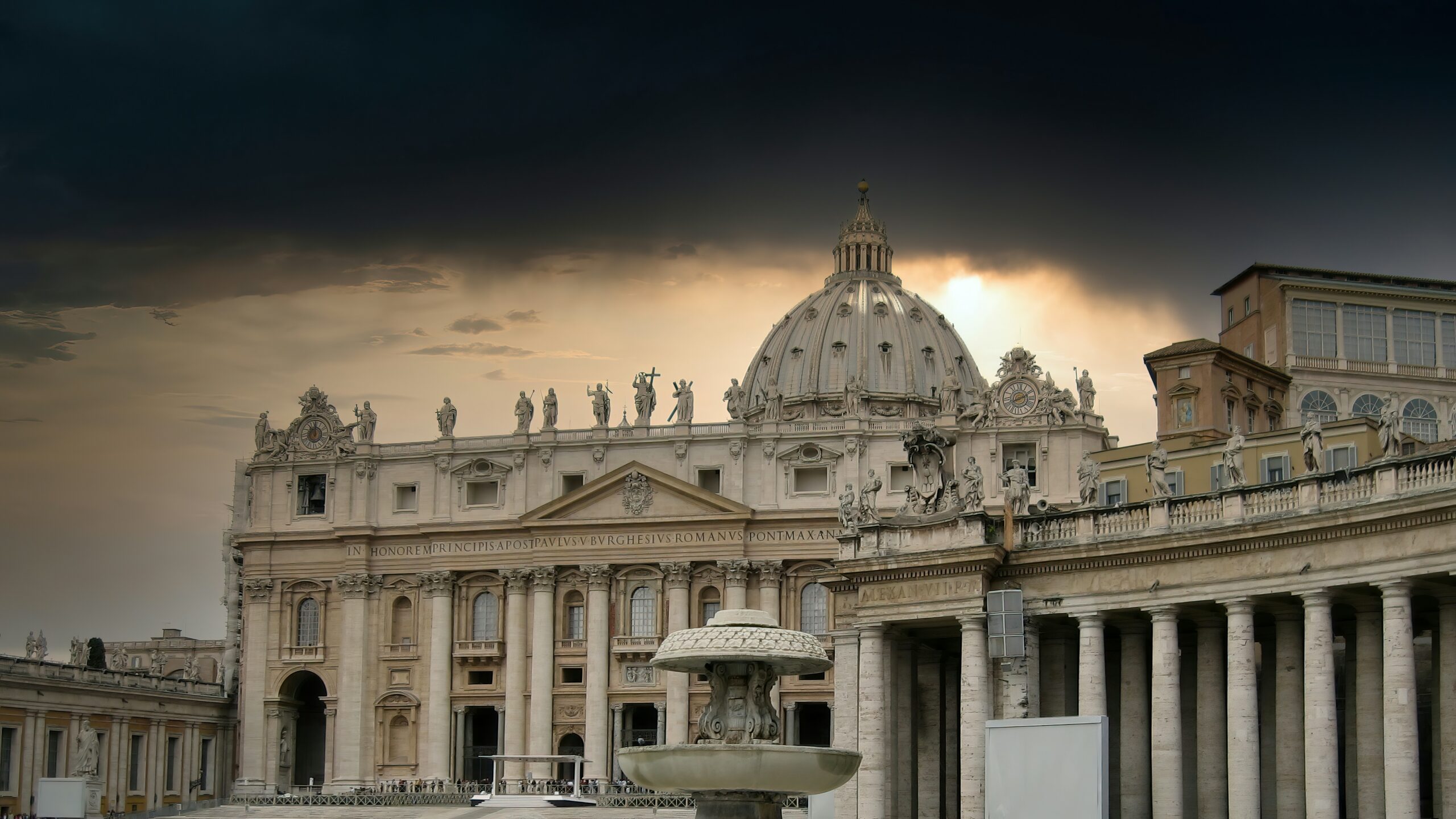
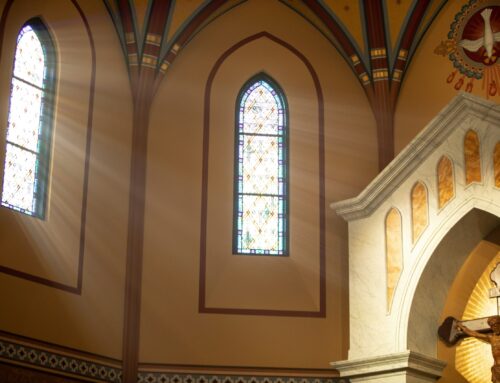
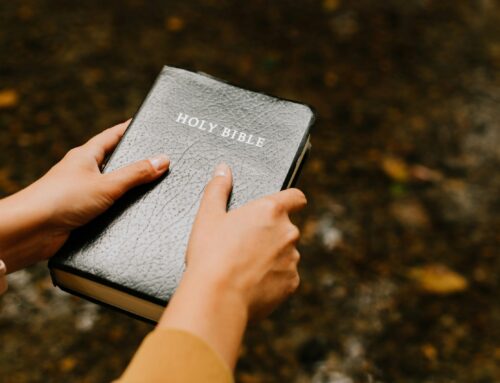
Leave A Comment